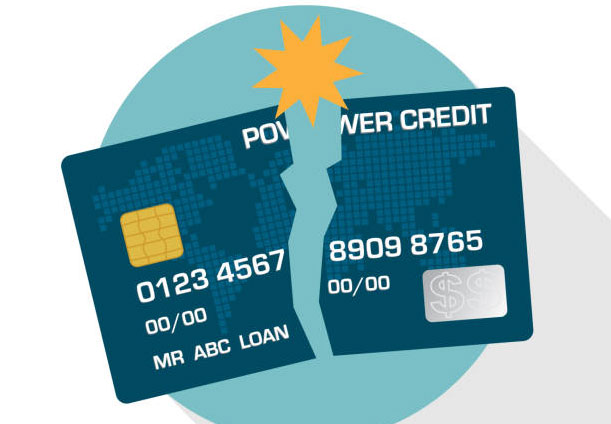Commercial Connotation of Asset Management
After the heavy losses suffered from great depression, American constructed a dual regulatory legal framework, which becomes a model for other countries.
Advertisement
Susan Kelly
Apr 03, 2023
Debt has become an increasingly pervasive issue in our modern society. Many individuals and businesses find themselves struggling to manage the burden of debt, often resulting in financial distress and uncertainty. In response to this growing problem, innovative solutions have emerged that seek to address the challenges associated with debt.
One such solution is the Debt Cancellation Contract. This unique contract provides a mechanism for borrowers and lenders to negotiate an agreement whereby some or all of the borrower's debt is cancelled in exchange for certain concessions or commitments. It represents a new approach to debt management that offers potential benefits to both parties involved.
Whether you are an individual struggling with debt or a business seeking to manage your liabilities, this book will provide valuable insights into an innovative solution that has the potential to help alleviate the burden of debt.

A DCC is a legal contract that cancels or reduces the outstanding debt owed by a debtor to a creditor. Unlike traditional debt contracts, which require the debtor to repay the full amount owed plus interest, DCCs offer a way for creditors to forgive or reduce the amount of debt owed by the debtor.
DCCs can be simple or complex, depending on the parties involved and the terms of the contract. Simple DCCs are typically used in consumer debt situations, such as credit card debt or personal loans. They involve a straightforward agreement between the debtor and creditor to cancel a portion or all of the debt owed.
On the other hand, complex DCCs are often used in corporate or sovereign debt situations. These contracts involve multiple parties and can include provisions such as debt-for-equity swaps or restructuring of the debtor's financial obligations. Sovereign DCCs, in particular, are agreements between a government and its creditors that cancel a portion of the country's outstanding debt. Corporate DCCs are similar, but involve a corporation and its creditors.

Simple DCCs are the most straightforward type of debt cancellation contract. They are typically used in consumer debt situations and involve a simple agreement between the debtor and creditor to cancel all or a portion of the debt owed. The terms of the contract are relatively simple and typically do not involve complex financial arrangements.
Complex DCCs are often used in corporate or sovereign debt situations. They involve multiple parties, such as banks, investors, and other creditors, and can include provisions such as debt-for-equity swaps, restructurings, and other complex financial arrangements. These contracts are typically used in situations where the debtor is struggling to meet its financial obligations, and the creditors are seeking ways to manage risk and avoid default.
Sovereign DCCs are agreements between a government and its creditors that cancel a portion of the country's outstanding debt. These contracts are often used when a country is struggling with debt, and its creditors are concerned about the country's ability to meet its financial obligations. Sovereign DCCs can involve complex negotiations between multiple parties, including international financial institutions and other foreign governments.
Corporate DCCs are similar to sovereign DCCs, but involve a corporation and its creditors. These contracts are typically used in situations where a corporation is struggling to meet its financial obligations, and its creditors are seeking ways to manage risk and avoid default. Corporate DCCs can involve complex financial arrangements, such as debt-for-equity swaps and restructurings.
Debt Cancellation Contracts (DCCs) are agreements between a debtor and a creditor that set out the terms of the cancellation of a debt. These contracts typically involve the exchange of some form of consideration, such as cash or other assets, in exchange for the cancellation of the debt.
Under a DCC, the creditor agrees to cancel all or part of the debt owed by the debtor, in exchange for the consideration provided by the debtor. The terms of the DCC can vary widely depending on the specific circumstances of the parties involved, but they generally include provisions related to the amount of the debt to be cancelled, the timing of the cancellation, and any other conditions that must be met before the debt is cancelled.
Reduced Debt Burden: One of the most significant advantages of DCCs is that they can reduce or eliminate the debt burden for debtors. This can provide significant relief for individuals, corporations, or even countries that are struggling to meet their financial obligations.
Risk Management: For creditors, DCCs can be a useful tool for managing risk. By negotiating a DCC, creditors can potentially avoid default by a debtor and mitigate their exposure to losses. This can be particularly useful in situations where the debtor is at risk of defaulting on its debt obligations.
Improved Financial Stability: DCCs can also contribute to improved financial stability for both debtors and creditors. By reducing the debt burden for debtors, DCCs can help to improve their financial situation and potentially avoid bankruptcy. For creditors, DCCs can help to stabilize their financial position and potentially avoid losses.
Preserving Relationships: Another advantage of DCCs is that they can help to preserve relationships between debtors and creditors. By negotiating a mutually beneficial agreement, both parties can work together to find a solution to a challenging financial situation, without the need for adversarial legal action.
Avoiding Legal Proceedings: DCCs can also be a useful alternative to legal proceedings. By negotiating a DCC, debtors and creditors can potentially avoid the costs, time, and stress associated with litigation. This can be particularly useful in situations where legal action is likely to be costly and time-consuming.
Moral Hazard: One of the most significant criticisms of DCCs is the potential for moral hazard. When debtors believe that their debts can be easily forgiven, they may be incentivized to take on more debt in the future. This can lead to a cycle of debt and DCCs that ultimately undermines the stability of the financial system.
Adverse Selection: Another criticism of DCCs is the potential for adverse selection. This occurs when debtors who are most likely to default on their debts are the ones who negotiate DCCs. This can result in higher costs for creditors and may ultimately lead to a situation where only the most financially distressed debtors are left in the market.
Negative Impact on Creditworthiness: DCCs can also have a negative impact on the creditworthiness of debtors. While a DCC may reduce or eliminate a debtor's debt burden, it may also signal to lenders that the debtor is a risky borrower. This can make it more difficult for the debtor to secure credit in the future.
Unequal Treatment: DCCs can also result in unequal treatment of debtors. In situations where only some debtors are able to negotiate DCCs, those who are unable to secure relief may feel unfairly treated. This can lead to resentment and can ultimately undermine social cohesion.
Legal Complexity: DCCs can be legally complex and may involve multiple parties. This can make it difficult for debtors to fully understand the terms of the contract and may result in disputes between the parties.
Overall, DCCs can be a useful tool for managing debt and mitigating financial risk. They can provide relief to debtors who are struggling to meet their obligations, and can help to preserve relationships between debtors and creditors. However, they should be used judiciously and with an eye to the potential drawbacks and limitations.
Advertisement
Commercial Connotation of Asset Management
After the heavy losses suffered from great depression, American constructed a dual regulatory legal framework, which becomes a model for other countries.
How to Rebuild Your Credit Score
When you have credit troubles, it can cause a lot of stress and expense in your life. Frustration is all too familiar if you're one of the almost 35% of American individuals with fair to very poor FICO Scores. If you have a poor credit history, getting a loan or a credit card may be difficult. Finding a job or a place to live might be challenging for some people.
How Replacement Window Costs Add Up
Replacing old windows can be a smart investment for homeowners, but it's important to understand the costs associated with replacement windows. In this comprehensive guide, we'll break down the factors that affect replacement window costs, the hidden costs you may not have considered, and provide tips for reducing those costs while still getting the energy-efficient windows you need.
The definition and design path of CBDC
CBDC is a new form of currency. Different from cryptocurrency, it has all the basic functions of currency and may have more functions in the future. Considering some of its challenges, the Bank of England is still discussing with the government whether to issue CBDC



